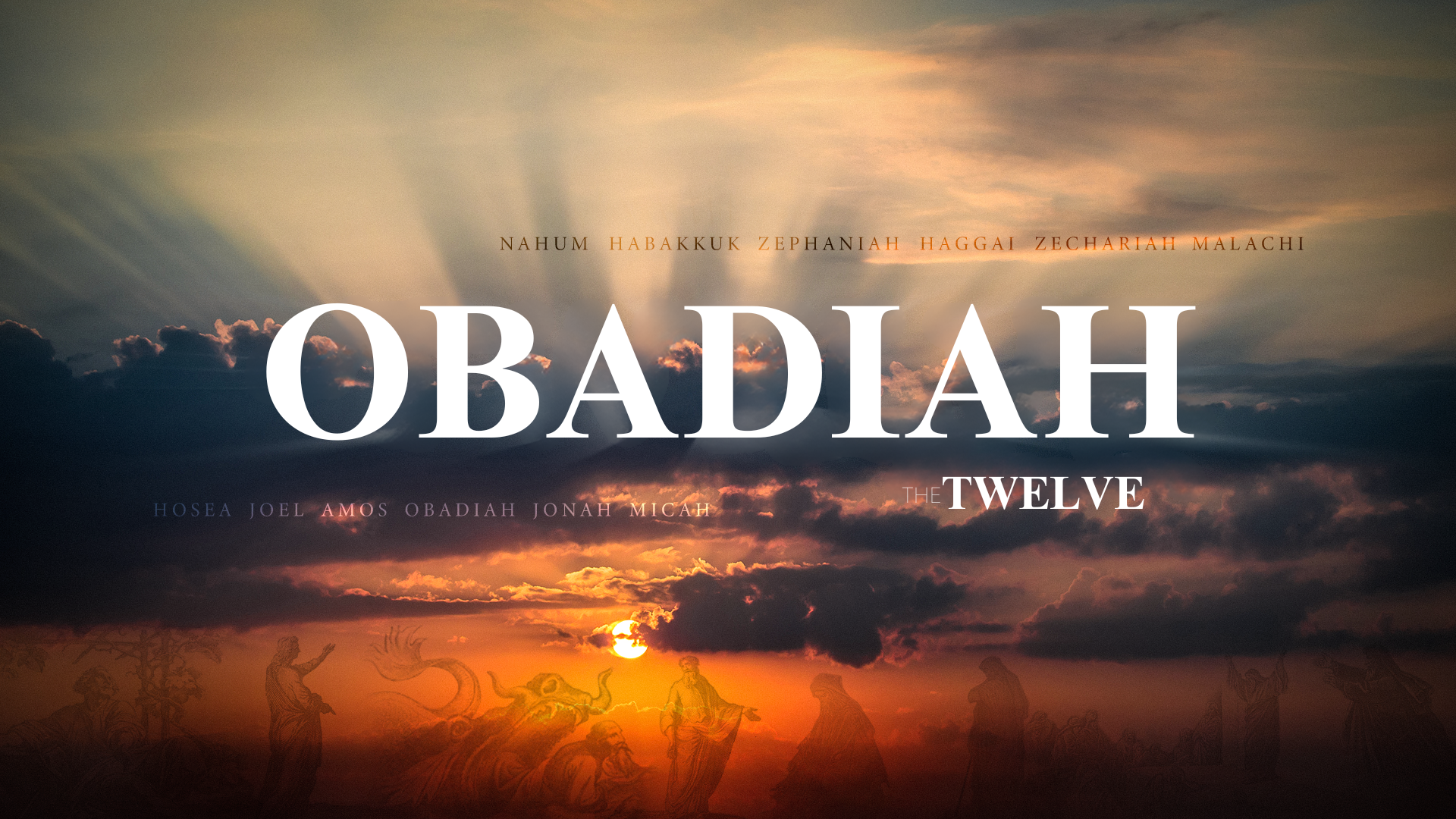Obadiah | God’s justice and the future restoration
Obadiah Overview
The Book of Obadiah is the shortest book in the Old Testament, consisting of just 21 verses. Despite its brevity, it delivers a powerful message of divine justice, focusing on the judgment of Edom—a neighboring nation of Israel—and the ultimate triumph of God’s kingdom. Obadiah’s prophecy addresses themes of pride, betrayal, punishment, and restoration, emphasizing that God opposes arrogance and defends His covenant people.
Historical Context
Obadiah's prophecy centers on Edom, a nation descended from Esau, the twin brother of Jacob (later called Israel). The Edomites lived in the rugged mountains southeast of Judah, particularly in a region called Seir. Although they were related to Israel by blood, their relationship was marked by ongoing hostility.
The specific historical setting of Obadiah is debated. Many scholars date the book to the 6th century B.C., shortly after the Babylonian destruction of Jerusalem in 586 B.C. During this time, Edom is believed to have taken advantage of Judah’s downfall—either by looting the city or assisting the Babylonians in capturing fleeing Israelites. Others suggest an earlier setting during attacks by other foreign nations, such as the Philistines or Arabians.
Regardless of the exact date, the central issue remains the same: Edom’s betrayal of Israel during a time of crisis and God’s response to that betrayal.
Structure and Content
The Book of Obadiah can be divided into two main sections:
- Judgment Against Edom (verses 1–16)
- Restoration of Israel and the Day of the Lord (verses 17–21)
1. Judgment Against Edom (Verses 1–16)
Obadiah begins with a “vision” from the Lord, announcing that a divine message has gone out to the nations: Edom will be brought low. Though the Edomites prided themselves on their high mountain strongholds and perceived invincibility, God declares that their pride will lead to their downfall. “Though you soar like the eagle and make your nest among the stars, from there I will bring you down,” says the Lord (Obadiah 1:4).
The core sin of Edom is not just national pride, but violence and betrayal. Obadiah accuses Edom of standing aloof while Jerusalem was attacked, rejoicing in Judah’s misfortune, looting the city, and even capturing and handing over fleeing survivors.
These actions are especially grievous because of the family relationship between Edom and Israel. Instead of aiding their brother nation in distress, Edom exploited the situation for gain. Obadiah emphasizes that such behavior will not go unpunished.
Verse 15 introduces a broader concept: the Day of the Lord, a future time of divine reckoning. Obadiah makes it clear that God's judgment is not limited to Edom. “As you have done, it will be done to you” (verse 15). This principle of divine justice extends beyond one nation—it is a universal call to accountability.
2. Restoration of Israel and the Day of the Lord (Verses 17–21)
After the announcement of Edom’s downfall, Obadiah shifts to a message of hope for Israel. On Mount Zion (a symbol of God’s dwelling and rule), there will be deliverance. The house of Jacob will reclaim its inheritance, and God's people will triumph over their enemies.
The imagery used is striking: the house of Jacob will be a fire, the house of Joseph a flame, and the house of Esau stubble—easily consumed. This represents the complete reversal of fortune. The oppressed will rise, and the oppressors will fall.
Obadiah ends with a vision of God's kingdom fully established. “The kingdom shall be the Lord’s” (verse 21). This concluding line points to the ultimate sovereignty of God and His plan to restore justice and righteousness on the earth.
Key Themes
1. Pride and Judgment
Edom’s pride in its geography, wisdom, and alliances led to overconfidence and cruelty. Obadiah’s message is clear: God opposes the proud and will bring them down.
2. Betrayal and Brotherhood
Edom’s betrayal of Israel is condemned not just because of political alliances, but because of their shared ancestry. The violation of brotherhood adds to Edom’s guilt.
3. The Day of the Lord
This concept in Obadiah refers both to the immediate judgment of Edom and the ultimate, global reckoning when God will judge all nations and establish His rule.
4. Justice and Restoration
God does not ignore wrongdoing. He will hold the guilty accountable and will restore and vindicate His faithful people.
5. The Sovereignty of God
The final declaration—“the kingdom shall be the Lord’s”—highlights the overarching message: God is in control, and His justice will prevail.
Conclusion
Though brief, the Book of Obadiah delivers a compelling and relevant message. It speaks to the dangers of pride, the consequences of betrayal, and the certainty of divine justice. At the same time, it offers hope that God will restore His people and reign supreme. In a world often marked by injustice and conflict, Obadiah reminds us that God sees, God acts, and ultimately, God wins.


